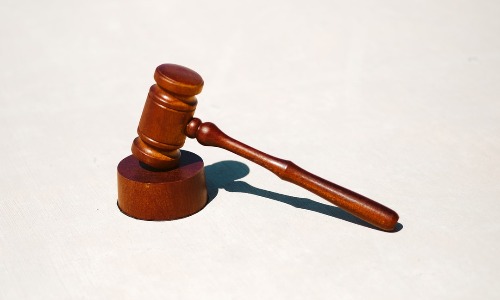A few days ago I got yanked out of my routine. JURY DUTY! Up early, navigating through a driving rain to Newark, New Jersey in bumper-kissing traffic.
Idling in line, as my fellow jurors picked parking slots, I crept up the spiral path of the Court’s garage until I popped out into roof top parking and found a slot far from the stairs leading down to the court, as a thundering downpour welcomed us to the Essex County Courthouse.
Luckily I had my rain jacket. I flipped up the hood, and ran in the direction everyone else was running. My legs took most of the moisture, even though I held my briefcase bumping in front of me.
I triggered the security alarm at the gate. Got wanded. My cell phone was in my hip pocket, wallet in the back, stuffed with credit cards.
Up the stairs to the juror holding pens. Like cattle in a stockyard. Checked in. Got my parking ticket validated. Sent to stockyard A.
146 people were sitting cheek to jowl, most on their cells. Waiting. A video came on featuring the chief judge of the district acknowledging that jury duty is a disruption, an inconvenience, but worth it.
Why? Because even though jury duty is a pain in the ass, there are people all over the world who would kill for a chance to be judged by their peers.
Take Mugabe, Kabila, Saddam Hussein, (to name only a few), in many countries, people are jailed and/or killed because they dared to speak truth to a tinpot tyrant.
The video over, a small man with a big voice stormed into the room. “Good morning jurors.” We mumbled and grumbled.
“Let’s try that again. Good morning jurors.”
“Good morning,” we said, with more intention.
And then off he went on a well-traveled routine educating us on the in’s and out’s of juroring. He came on like a drill sergeant and left like an elementary school principal.
He knew how many people were in the room. He had a list of one hundred and forty-six American citizens. And I made an observation–all different kinds of inconvenienced American citizens.
I sat all morning, never being called to duty. It was comfortable. I was in the computer lounge, with free and strong wifi and coffee, sending out proposals and notes to the office.
I was struck by the diversity in the lounge, and in the three huge holding pens that were differentiated by the TV channel that blared from the walls. We had a choice. It was either HGTV, ESPN, or CNN.
Occasionally I would stop work and read one of my books on my new Kindle Fire. I’m currently interested in pre-fab houses, in case I ever retire.
Those of us in the computer lounge kept to ourselves. It was like the quiet car on NJ Transit. Occasionally someone’s cell phone would erupt in jangling song, only to be rapidly squelched.
I felt like a piece of meat sometimes. Or like a goldfish in a big tank, that every once in a while someone dips a little net into, and pulls out a generic specimen of Carassius auratus-– common goldfish: me.
I wait to hear my name called. They spew torrents of names through the speakers, lists that go on for 10 minutes. So many people, so many names–most of them unpronounceable to the brave court officers at the front desk reading them out awkwardly, apologetically.
My name, Wyeth, was called once. The struggling court officer called me Weeth. In two long days, I never got even close to a jury.
I got bored and frustrated. Sitting all day is bad for your health. I took my sweater on and off, and ate my lunch, an almond butter sandwich and a honey-crisp apple.
I struggled to take the long view. Why was I here? I’m not much of a political scientist, but I wonder why we are forced to go to jury duty, but we’re not forced to vote. In Australia, you get fined when you don’t vote.
Jury duty is no doubt a pain in the ass. It’s messy. Except you can’t have a democracy without an active, engaged and educated populace.
The tiny sacrifices and inconveniences that tens of millions of people make and endure every day in every county in the nation is the force that keeps the system going.
I complained about going weeks before I had to go. But there was a little seed in me that made me stop complaining.
I got up early. I drove in the rain and traffic. I sat long hours waiting to be called, partially because I’d be fined if I didn’t comply, but mostly because somewhere in my lizard brain I knew the scales of justice might end up in my hands.
And many of us, perhaps the newest Americans among us, were there without complaining, because they were familiar with the alternative.
